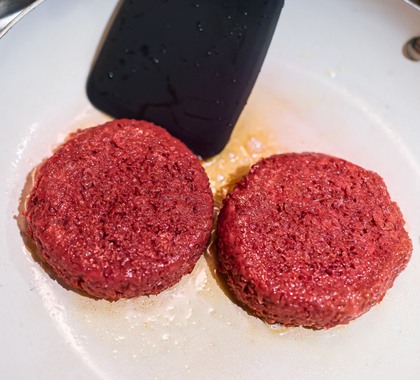The Green New Dealers want us to think we have to either live more austere lives under coercive government policies or destroy the planet. Opponents of their plan, the theory goes, are willing to sacrifice the environment for short-term financial prosperity for the elite few.
Nothing could be further from the truth.
Meeting Americans’ needs, especially those of the neediest, requires free markets that can realize and reward the benefits of technological innovations, big and small.
Big innovations are those such as the high-yielding grains created and made available by “Father of the Green Revolution” Norman Borlaug; small, incremental ones might be the introduction of disc brakes (a few decades ago) and the 5G networks soon to be widely available.
The authors of this piece have distinctly different diets, mainly because one is strictly kosher and the other is (emphatically) not, but we both enjoy eating red meat. And although we are sympathetic to concerns about the impacts of raising and consuming meat, some more valid than others, neither of us is inclined to become a vegetarian, nor do we support the sin tax on meat that some have proposed to fight climate change, spare animals, or whatever.
A remarkable innovation now enables us and other carnivores to enjoy something that tastes very much like meat, but is completely guilt-free. With seed funding from Bill Gates, Google and other innovation-oriented investors, a company called Impossible Foods has sought to address climate change by developing plant-based meat alternatives meant to appeal not to vegetarians, but to meat-lovers like us.
Despite the displeasure of cattle ranchers (because it’s competition), opposition from environmental activists (it uses “GMOs”), and – improbably – outrage from People for the Ethical Treatment of Animals (requires food safety testing on rats to satisfy the Food and Drug Administration), the Impossible Burger is hoofing it into the U.S. market in a big way.
The FDA has confirmed the safety of Impossible Foods’ plant-sourced leghemoglobin, a meat protein that is partly responsible for the taste, texture and appearance of meat. The burger even cleared another major regulatory hurdle when it was certified as kosher by the Orthodox Union.
Burnishing its high-tech chops, the company unveiled Impossible Burger 2.0 last year at the Consumer Electronics Show, where it created a sensation. These burgers create a win-win situation. They offer us the ability to reduce our consumption of (real) meat, should we wish to do so – and it’s good news for those who think the world would be better off if we did.
The only side effects from the Impossible Burger are headaches, heartburn, and panic attacks in the self-designated food elite who demand that we eat “naturally” to protect the planet.
Improvements in agriculture are typically continual and incremental, but cumulatively they can make a big difference, especially to those at the bottom of the food chain – subsistence farmers. But there are always naysayers, such as the activists who reject farming with state-of-the-art pesticides and crops developed with the most precise and predictable genetic techniques. Why would anyone do that? Simple – they are mouthpieces for the purveyors of inferior, overpriced competing organic products, which are made with primitive practices that are wasteful of water and arable farmland.
How primitive is organic agriculture? Plant pathologist Steve Savage analyzed data from the U.S. Department of Agriculture’s 2014 Organic Survey, which measures productivity from most of the nation’s certified organic farms, and compared them with those at conventional farms, crop-by-crop and state-by-state. His findings are extraordinary: Of the 68 crops surveyed, organic farms showed a “yield gap” – poorer performance – in 59.
Many of the shortfalls were large: Organic strawberries yielded 61% less than conventional farms; fresh tomatoes, 61% less; tangerines, 58% less; cotton, 45% less; rice, 39% less; peanuts, 37% less.
“To have raised all U.S. crops as organic in 2014 would have required farming of 109 million more acres of land,” Savage concludes. “That is an area equivalent to all the parkland and wild land areas in the lower 48 states, or 1.8 times as much as all the urban land in the nation.”
Inexcusably, the federal government is heavily involved in setting standards for and promoting organic practices. The reason is something of a historical anomaly. When the organic standards were promulgated in 2000, Secretary of Agriculture Dan Glickman was unequivocal about the fundamental meaninglessness of the organic designation: “Let me be clear about one thing, the organic label is a marketing tool. It is not a statement about food safety. Nor is ‘organic’ a value judgment about nutrition or quality.”
Truly disruptive innovation is not only rare, but as Impossible Foods is learning, bringing game-changing products to market requires overcoming resistance from entrenched interests that pretend to represent the public interest.
If we are to raise our standard of living, increase longevity, and protect the natural environment, new and innovative technologies will be essential. And we should let the marketplace decide their success or failure. In today’s polarized environment, that’s no nothing-burger.
[Originally Published at Issues & Insights]




